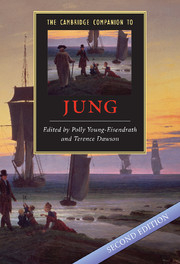Book contents
- Frontmatter
- New developments in the post-Jungian field
- Part I Jung’s Ideas and their Context
- Part II Analytical Psychology in Practice
- Part III Analytical Psychology in Society
- 11 Jung and Buddhism: refining the dialogue
- 12 A Jungian analysis of Homer’s Odysseus
- 13 Literary criticism and analytical psychology
- 14 Jung and politics
- 15 Jung and religion: the opposing self
- Index
15 - Jung and religion: the opposing self
from Part III - Analytical Psychology in Society
Published online by Cambridge University Press: 28 June 2008
- Frontmatter
- New developments in the post-Jungian field
- Part I Jung’s Ideas and their Context
- Part II Analytical Psychology in Practice
- Part III Analytical Psychology in Society
- 11 Jung and Buddhism: refining the dialogue
- 12 A Jungian analysis of Homer’s Odysseus
- 13 Literary criticism and analytical psychology
- 14 Jung and politics
- 15 Jung and religion: the opposing self
- Index
Summary
Jung noted that for centuries the symbols, rituals, and dogmas of religions, east and west, gathered the psychic energy of individuals and nations alike into traditions that bore witness to life's meaning and acted as underground springs nourishing different civilizations. What religious symbols symbolize, however, is the God who escapes human definitions. With the shock of the world wars and brutal inhumanity, for many people in the twentieth century, the collective containers of religious symbolism no longer channeled their psychic energy. As a result, many felt uprooted from religious traditions and the symbolic life that put them in daily touch with a sense of transcendent meaning at the center of life. Now in the opening years of the twenty-first century religion again takes a dominant place in the clash of civilizations, thus underlining Jung's perception of the inescapable importance of religious experience that channels psychic energy into individual and communal forms. Called or not, Jung holds, God will be present, and if not God, then what we substitute in that central place. Afraid of becoming unanchored, we create religious, political, and sexual fundamentalisms to keep us close to the reality the religious symbols once conveyed, but at the price of persecuting those who disagree with us as. Or we can just drift far away from the life-giving waters of religious experience, confined to humdrum carrying on, without joy or purpose.
- Type
- Chapter
- Information
- The Cambridge Companion to Jung , pp. 315 - 332Publisher: Cambridge University PressPrint publication year: 2008
- 6
- Cited by



